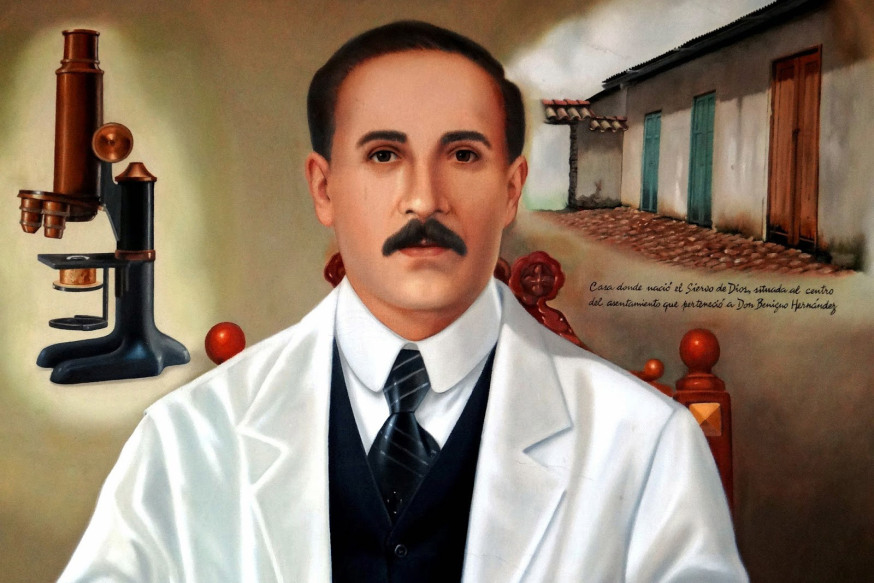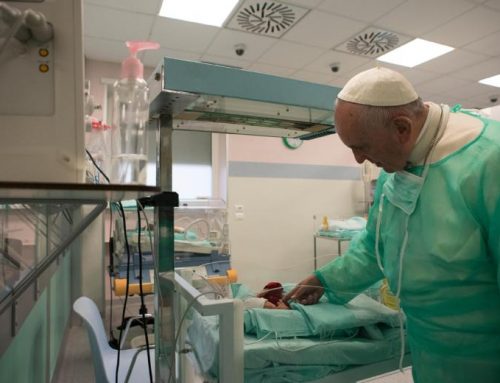Pope at Audience: Blessed José Gregorio Hernández was ‘doctor of the poor’
During his weekly General Audience, Pope Francis continues his catechesis series dedicated to apostolic zeal, and praises the holiness of the ‘doctor of the poor,’ Blessed José Gregorio Hernández, who left an unforgettable legacy in Venezuela.
By Deborah Castellano Lubov (Vaticannews)
The ‘doctor of the poor,’ Blessed José Gregorio Hernández Cisneros, can inspire us, with his holy example.
Pope Francis stressed this as he reflected on the Venezuelan blessed during his General Audience on Wednesday morning in the Vatican, as he continued his series of catecheses on figures in the Church who embodied apostolic zeal.
The Holy Father, who beatified Hernández in 2021, reflected on the Venezuelan doctor, a layperson – who selflessly gave of himself entirely, to help others.
While another miracle would be needed for him to become a canonized saint, this has not deterred many Venezuelan faithful who have a profound tradition of devotion to him, especially for healing.
‘Doctor of the poor’
The Pope recalled that the Blessed, born in 1864, learned the faith above all from his mother, having said, “My mother taught me virtue from the cradle, she made me grow in the knowledge of God and gave me charity as a guide.”
The Holy Father, once again, highlighted how mothers so often transmit the faith and love of Christ in their dialect to their children.
While suggesting that charity was the “polar star” that oriented the existence of Blessed José Gregorio, the Pope described him as a good and radiant person, with a cheerful disposition, who, gifted with a marked intelligence, became a doctor, university professor and scientist.
“But he was above all a doctor close to the weakest, so much so that he was known in his homeland as ‘the doctor of the poor.'”
Not interested in monetary wealth, he was drawn instead to the richness of the Gospel, the Pope said.
“In the poor, the sick, the migrants, the suffering, José Gregorio saw Jesus,” he said, noting, “the success he never sought in the world, he received, and continues to receive, from the people, who call him ‘saint of the people,’ ‘apostle of charity,’ ‘missionary of hope.'”
Availability to God’s designs
A humble, kind and helpful man, José Gregorio, Pope Francis said, was moved by “an inner fire, a desire to live in the service of God and neighbour.”
Driven by this ardour, he tried several times to become a religious and a priest, but various health problems prevented him from doing so.
“His physical frailty did not, however, lead him to close in on himself, but to become an even more sensitive doctor to the needs of others,” the Pope highlighted, saying he had clung to Providence.
Apostolic zeal, the Pope said, is precisely this, “not following one’s own aspirations,” but remaining “available to God’s designs.”
The Holy Father said he lived the “priesthood of medicine,” ministering to people’s pain.
Intimacy with God
The Pope asked where José Gregorio had received all this enthusiasm and zeal, saying it was from both, the certainty of the “grace of God,” and the strength from his “intimacy with God.”
“He was a man of prayer,” Pope Francis said.
‘Apostle of peace’
The Holy Father said the Blessed felt called to offer his life for peace.
Out of faith and love for Christ, the Blessed “wanted to be an ‘apostle of peace.’
However, his life of service would come to an end, when he was only in his early 50s. José Gregorio had been at Mass and then gone down the street to bring medicine to a sick person. Crossing the street, he was hit by a car, taken to hospital, and died pronouncing Our Lady’s name.
“His earthly journey thus ends,” the Pope acknowledged, “on a road while doing a work of mercy, and in a hospital, where he had made his work a masterpiece of good.”
Let’s ask ourselves
The Holy Father encouraged the faithful to ask themselves how they react to Jesus, present in the poor person in front of them, and said Blessed José Gregorio also stimulates us to commit ourselves before today’s great social, economic and political issues.
The Holy Father concluded by praising the Blessed as a model of what Christians are called to do, “get their hands dirty,” by being close to others in need and by working to promote peace.
………………………….










